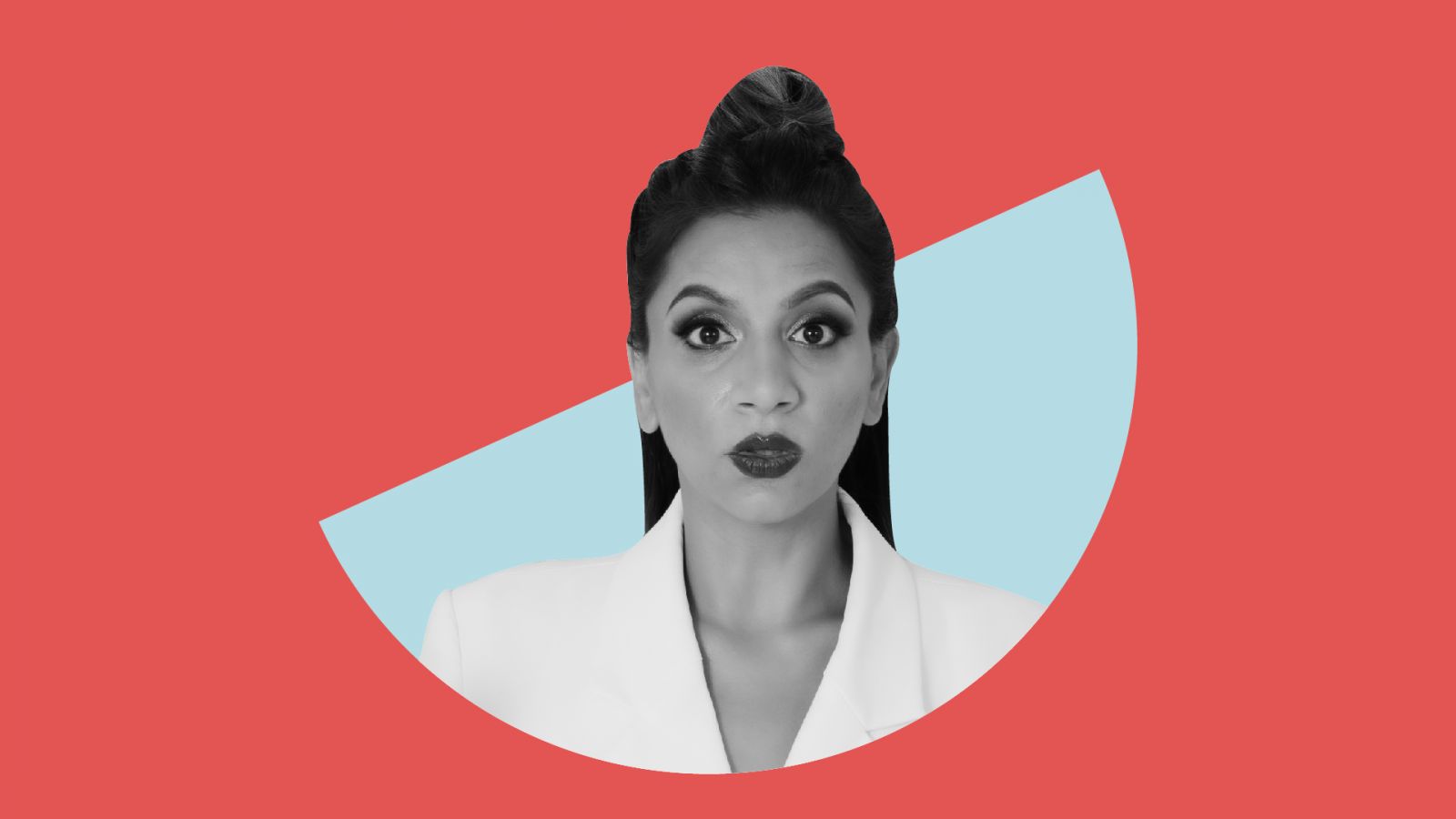The Singaporean comedian discusses her experiences with harassment and discrimination as a female comic of colour, and standing up to disrupt damaging stereotypes
Gender and race are two topics that not everyone likes to talk about—whether because they make people uncomfortable or are too divisive. But not for Sharul Channa, who has made it her job to find comfort in the discomfort.
Read more: Sharul Channa: “Asian women are taught to be coy—and that’s not funny”
The comedian is known for her witty punchlines and jokes, which she uses to address issues she has had to deal with as a female standup of Indian descent living in Singapore. Comedy is her avenue to speak out and bust taboos about body image, gender and race.
Sure, not everyone finds her funny, but that’s ok because it’s part of the job—and she has developed a thick skin over the years.
In the latest episode of our Crazy Smart Asia podcast, the 2019 Gen.T honouree didn’t hold back on giving her views on a variety of topics, from what helped build her armour as a standup to why she’s a durian and not a mango. She also shared about the three minutes that changed her life and set her on the path to becoming one of Singapore’s rising comedy stars.
Here are a few excerpts from the conversation. Click the audio player below to listen to the full episode or subscribe via Apple, Spotify or wherever you get your podcasts.

On her first standup moment
“When you’re a person of Indian descent; a woman in a country which is majority Chinese, you’re not used to getting a lot of attention. I kind of felt comfortable [being] in the dark, just [being] at the side. So I was like, nobody cares about me. I’m just gonna go up [on stage], do these jokes [for] 3 minutes and put myself out there. I’ve got nothing to lose.”
On establishing her own presence
“I had to fight all of those stereotypes, break the box down and create my own shape. I didn't sound like any of the boys. I had my own voice. I had to fight harder.”
Read more: Singaporean rapper Yung Raja on what it takes to succeed in hip-hop
On women in comedy
“Women have not hit their peak in comedy yet, because they’ve either not been allowed to or there’ve been a lot of societal dimensions and they’ve had to keep pushing their boundaries. [Female comedians] view things differently. Even if they’re the brash ones, they’re not common. The women’s comedy scene is a completely different genre altogether.
On cultivating a thick skin
“Because I never grew up [knowing] gender roles, I don’t get affected by people going, ‘Oh, you look [so and so].’ The first place they hate you is where they think you're going to get hurt, right? So it’s your looks, then your gender, then you’re not funny. I think what used to affect me is when people would be like, ‘Oh, your husband is funnier than you.’ Thankfully, [my husband] Rishi [Budhrani] and I addressed it, so I’m okay.”
On having the confidence to break the mould
“Confidence in yourself is so important and just know that you have to practise. Even if people try to put you down, you have to practise your voice. You need to speak your truth. You need to find out what’s important to you and you need to believe in yourself.”
Quotes are edited for clarity and brevity.
Listen to the episode and subscribe using your preferred podcast platform on our Crazy Smart Asia podcast page.
